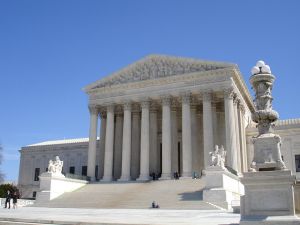 The highly anticipated “AseraCare” decision (United States v. GGSNC Admin. Serv. LLC) is still pending before the Eleventh Circuit Court of Appeals. The court is considering “whether a mere difference of opinion between physicians, without more, is enough to establish falsity under the False Claims Act.” To provide some context, the U.S. District Court evaluated the “falsity” element of the False Claims Act in the context of a hospice provider’s “clinical judgment” that a person meets the standard to be eligible for the Medicare Hospice Benefit. The requirement is that a patient be eligible for Medicare Part A and be “Terminally Ill” as defined by the regulation. “Terminally Ill” requires that the hospice Medical Director make a determination that the prognosis of the patient indicates a life expectancy of 6 months or less. So the issue is whether or not the “battle of expert opinion,” without some additional element, is enough to establish that a patient is not terminally ill rendering the subsequent Medicare reimbursement submissions false or fraudulent.
The highly anticipated “AseraCare” decision (United States v. GGSNC Admin. Serv. LLC) is still pending before the Eleventh Circuit Court of Appeals. The court is considering “whether a mere difference of opinion between physicians, without more, is enough to establish falsity under the False Claims Act.” To provide some context, the U.S. District Court evaluated the “falsity” element of the False Claims Act in the context of a hospice provider’s “clinical judgment” that a person meets the standard to be eligible for the Medicare Hospice Benefit. The requirement is that a patient be eligible for Medicare Part A and be “Terminally Ill” as defined by the regulation. “Terminally Ill” requires that the hospice Medical Director make a determination that the prognosis of the patient indicates a life expectancy of 6 months or less. So the issue is whether or not the “battle of expert opinion,” without some additional element, is enough to establish that a patient is not terminally ill rendering the subsequent Medicare reimbursement submissions false or fraudulent.
Our business and healthcare law firm follows relevant legal developments that impact the delivery of health care. While we have been patiently waiting for a decision, both the Sixth and Tenth Circuit Court of Appeals have wet our appetite for the issue. Within two-weeks time, the courts, respectively, released what most would call similar opinions. Although considered in a slightly different context than the Eleventh Circuit, the Sixth and Tenth have essentially both held that this “difference of opinion” is enough to warrant a jury determination. In United States v. Paulus, the Sixth Circuit considered the issue in the criminal context deciding that the differences of opinions were more appropriately left to the jury, stating that “The reliability and believability of expert testimony that has been properly admitted, is exclusively for the jury to decide.” In United States ex rel. Polukoff v. St. Marks Hosp., the court rejected the notion that “opinions, medical judgment, and conclusions about which reasonable minds may differ cannot be false for the purposes of an FCA Claim.” The court indicated that admissible evidence of the falsity is a factual dispute more appropriate for the jury.
If the Eleventh Circuit affirms the district courts determination, one may reasonably conclude that a circuit split worthy of Supreme Court resolution exists. In considering the Supreme Courts most recent evaluation of the False Claims Act in Escobar, the Court, in its discussion of the materiality element of the false claims act, indicated that falsity was not really worth its time to consider. The Court stated that “instead of adopting a circumscribed view of what it means for a claim to be false or fraudulent, concerns about fair notice and open-ended liability can be effectively addressed through strict enforcement of the [FCA’s] materiality and scienter requirements. Those requirements are rigorous.”
Not surprisingly, the Tenth Circuit cites to this discussion supporting their proposition that it is nonsensical to worry about physician exposure to liability based on a broad construction of the falsity element. However, called upon to decide the issue before it, the Tenth Circuit, although indicating the issue may be one already resolved by the High Court, stands by the proposition that medical judgment can be false or fraudulent in at least the appropriate circumstances.
Adopting this interpretation may preclude the falsity element from being considered independently of the other elements of the FCA (i.e. Scienter, materiality, and payment from the government). Under this method of reasoning, the AseraCare district court’s bifurcation of the issues would require the issues to be retried after a significant amount of time. So, when the Court is asked to consider “whether a mere difference of opinion without more is enough to establish falsity under the FCA,” will the Court say that it is an issue already decided?
Hamil Little PC
Our business and healthcare attorneys advise and represent hospitals, medical practices, physicians and other healthcare providers. If you have questions about this post, contact us at (404) 685-1662 (Atlanta) or (706) 722-7886 (Augusta), or by email, info@hamillittle.com.
** Disclaimer: Thoughts shared here do not constitute legal advice. Please consult with an attorney to discuss your legal issue.
 Total Health Law Blog
Total Health Law Blog

